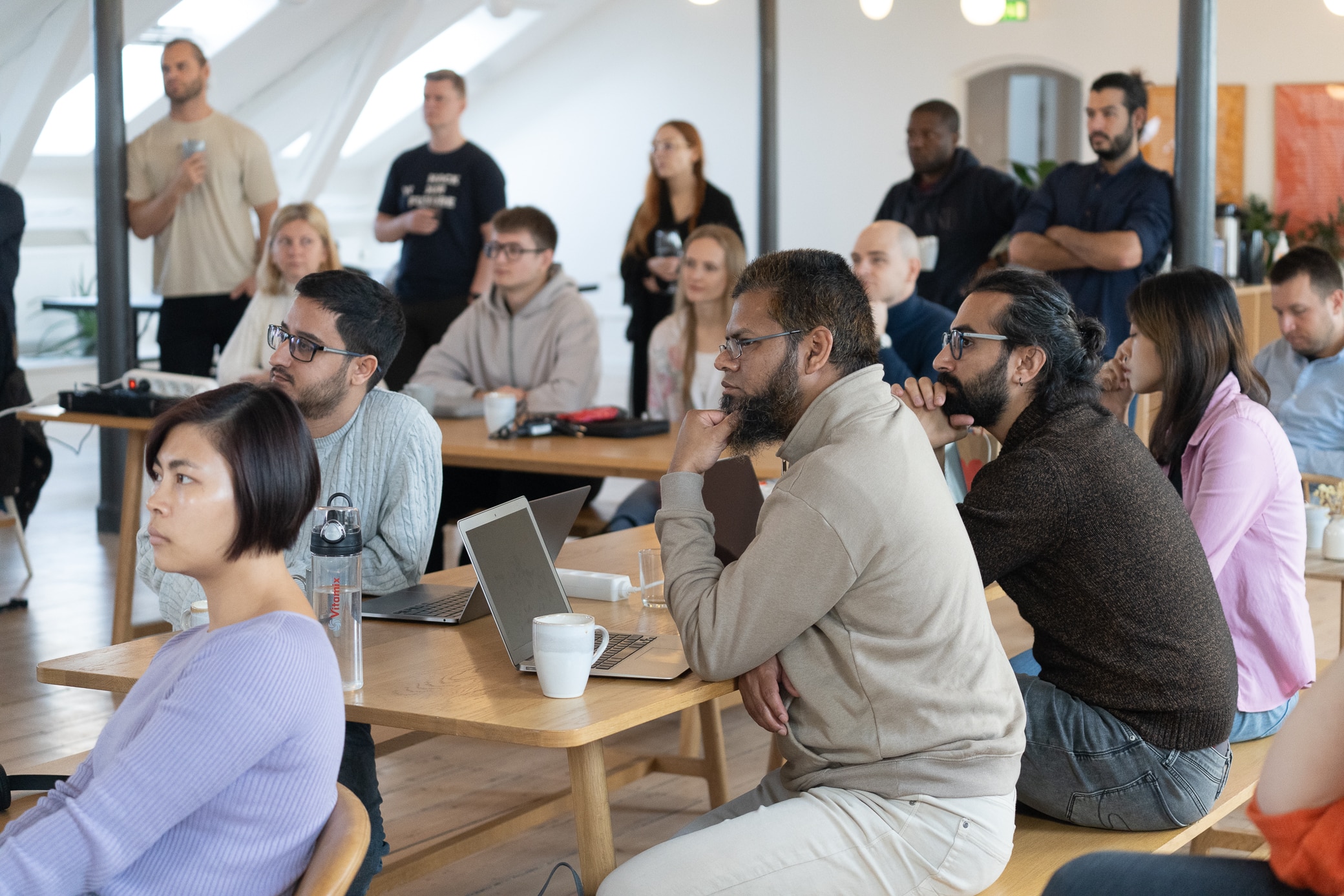Hack Your Future trains refugees for the IT jobs that Danish businesses need people for.
The English word hack can have several meanings. But when put together to form Hack Your Future, it means that refugees or asylum seekers in Denmark get a shortcut to a future in the labour market.
Hack Your Future is a non-profit organisation that offers web developer courses with a focus on modern JavaScript. Participants do not need prior technical knowledge and are selected based on how marginalised they are in relation to the labour market as well as their ability to complete a course, including English skills and time to attend the course. The focus is on getting participants trained for a job and they are helped on the course to build a CV and write applications.
And the IT skills acquired during the 34-week course are welcomed with open arms in many companies. Qualified IT labour is crucial for companies to grow and compete internationally. The Otto Mønsted Foundation has supported Hack Your Future on several occasions, with the majority of course participants finding employment after the course.
Kristoffer Tølbøll is a Software Developer & Consultant at the auditing and consulting firm PWC, and he is one of several people who speak favourably about Hack Your Future’s students.
“My experience with Hack Your Future students is that they are very engaged and highly motivated to learn more. The skills and competences they have learned through Hack Your Future are very relevant to many IT companies, and I believe they can be a great help in filling the demand for software developers that exists in Denmark.”
Since Hack Your Future was established in Denmark five years ago, Danish companies have hired a total of around 150 employees who have completed the web developer training programme called “Your shortcut to IT jobs”. The foreign employees also contribute to increased diversity in culture, language and gender in the companies.
Taught by industry professionals
The students are taught by volunteer teachers from the tech industry in either Copenhagen or Aarhus, and during the course they gain the necessary technical and social skills to work as web developers or, in some cases, to apply for admission to the IT University of Copenhagen.
One of the students, Mohammad from Syria, worked as a warehouse worker at Netto during the course. Today he works as a front-end developer at Salling Group in Aarhus. He explains:
“Being part of a community like Hack Your Future has given me great benefits. It’s a unique opportunity to learn from many mentors with different and extensive experience in programming. And learning from the professionals working as web developers in Denmark is a better and faster way to learn web development through their tips, ideas and the programming platforms that we will need most in our future careers,” he says.
Read more about Hack Your Future
Facts:
Participants in “Your shortcut to IT jobs” are taught different programming languages every Sunday and also have 30 hours of preparation per week. During the programme, students can gain insight into the everyday life and needs of Danish companies in collaboration with Hack Your Future’s partner companies. These companies provide employees who can help students with homework and collaborate with Hack Your Future to organise workshops, arrange company visits and establish jobs for the students. After a course, students are also offered help with CVs and job applications.
Photo: Zaki Wasik

